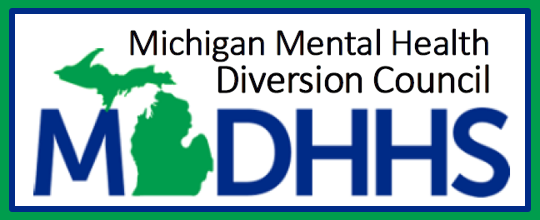Families and advocates
Download Resource library Testimonials
Many individuals living with a serious mental illness (SMI) do not adhere to outpatient treatment, often resulting in increased rates of suicide and self-harm, violent behavior, insecure housing, high utilization of ERs, and frequent contact with law enforcement. These behaviors and vulnerabilities lead to high rates of inpatient psychiatric hospitalization and incarceration.
Assisted outpatient treatment (AOT) is a legal mechanism for providing outpatient treatment to individuals living with SMI whose non-adherence places them at risk for negative outcomes. AOT works by compelling the recipient to receive specific treatment that will prevent their condition from worsening and by committing the mental health system to provide treatment. AOT orders allow concerned parties (such as families and treatment providers) to intervene on behalf of an individual living with SMI without having to wait until that individual reaches a crisis, increasing the individual's ability to function in the community.
Why does AOT matter to families and advocates?
More than 1 in 20 adults in the US live with serious mental illness, and the challenges they face are shared with those who love them. There are close to 8.5 million adults providing care for adults living with SMI, and for many of them is it a full-time job. One of the most challenging aspects families and advocates face in their efforts to support these adults is getting their loved one the right treatment, especially given the reality that anywhere from 50-95% of adults living with an SMI do not recognize they are ill, leading to non-adherence with treatment. In turn, treatment non-adherence can result in a host of adverse events, including homelessness, suicidal behavior, substance use, violence, and incarceration. Families and advocates know the pain and sense of helplessness that comes with watching loved ones deteriorate without treatment.
AOT was designed to address the problem of treatment non-adherence arising from SMI and accomplishes this goal in two ways. First, it holds the individual accountable for participating in treatment, supplementing the efforts of families and advocates by adding the support of the probate court.
Second, it holds treatment providers accountable for providing treatment by monitoring the individual's progress. Research has shown that AOT is effective at reducing many of the adverse outcomes associated with untreated SMI, including hospitalizations, suicidal behavior, violent behavior, alcohol use, drug use. Even more importantly, it allows individuals to reach their potential, less encumbered by their illness.
What are families and advocates responsible for?
- Support the individual in their treatment.
- Can demand a hearing if they notice that the services that have been ordered are not being delivered.
Action steps for families and advocates:
- Learn more about AOT, how to file, and whether your loved one is a good candidate.
- Get support for yourselves the National Alliance on Mental Illness offers a wide range of support options to assist you and your loved one.
Frequently asked questions for families and advocates
- Is there a clear path/guidance for families seeking AOT services for loved ones?
The petitioner and/or interested person can contact their local CMH or probate court to learn how to start the process. You can get more information about for whom AOT is best suited here (Link to ‘Who is best suited’) and information on how to start the process here (Link to ‘How do I start the process’)
